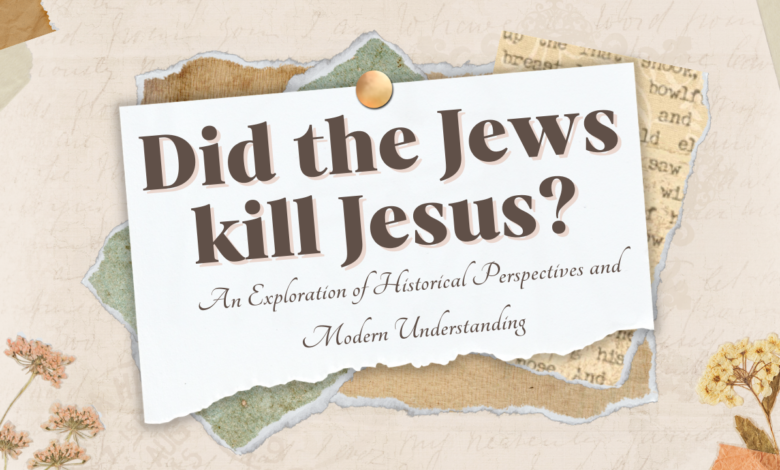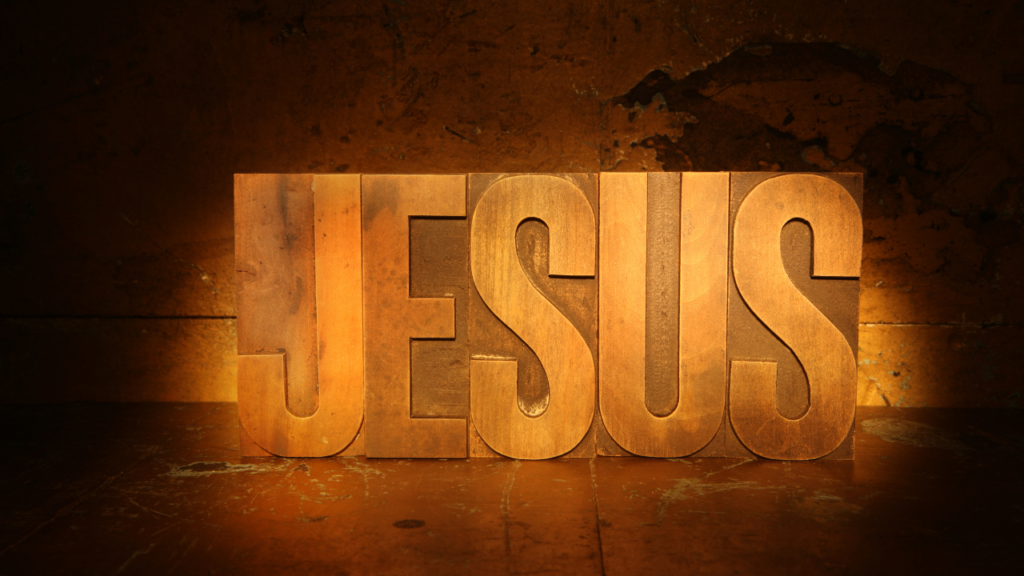
Did the Jews kill Jesus?
No, Jews as a collective group did not kill Jesus. The crucifixion of Jesus is described in the New Testament of the Bible, and it involved Roman authorities, particularly Pontius Pilate, who sentenced Jesus to death.

Introduction
The question of whether Jews were responsible for the crucifixion of Jesus has been a topic of debate and controversy for centuries. This question, rooted in historical events, theological interpretations, and cultural biases, continues to be a sensitive and important issue in discussions of religious history. In order to provide a fair and balanced examination of this question, it is essential to explore the historical context, multiple perspectives, and modern understanding of this complex issue.
The Historical Context
To address the question of whether Jews were responsible for Jesus’ crucifixion, we must first delve into the historical context. Jesus Christ lived in the 1st century CE in the Roman province of Judea, a region under Roman rule. According to the Christian Gospels, Jesus was arrested, tried, and crucified by the Romans at the instigation of certain Jewish religious authorities. However, it’s important to note that the Gospels themselves were written several decades after the events they describe and were shaped by the theological and political interests of their authors.
Also Check
- How tall is Jesus?
- What is Jesus real name?
- Did Jesus have a wife?
- How old was Mary when she had Jesus?
- What a friend we have in Jesus?
- How did Jesus die in Islam?
Perspectives on Responsibility
- Theological Perspective:
Christian theology has evolved various interpretations regarding the responsibility for Jesus’ crucifixion. Traditional Christian theology, for centuries, held Jews collectively responsible for Jesus’ death. This perspective, known as “Jewish deicide,” led to widespread anti-Semitic sentiments and persecutions throughout history. - Historical Perspective:
From a historical standpoint, it is crucial to recognize that Jesus’ crucifixion was carried out by Roman authorities, not the Jewish population as a whole. The Jewish religious leaders of the time, particularly the high priest Caiaphas, played a role in orchestrating Jesus’ arrest and trial. However, these actions should not be generalized to the entire Jewish community. - Modern Understanding:
Contemporary scholarship and interfaith dialogue have led to a more nuanced understanding of Jesus’ crucifixion. It is now widely acknowledged that Jesus’ execution was a complex event involving Roman political interests, Jewish religious authorities, and a variety of social and cultural factors. Assigning collective blame to the Jewish people is seen as unjust and has been largely disavowed by mainstream Christian denominations.
Rejection of Anti-Semitism
It is important to emphasize that assigning blame for Jesus’ crucifixion to the Jewish people as a whole is not only historically inaccurate but has also been condemned by many Christian denominations and interfaith organizations. The Second Vatican Council (1962-1965) issued the Nostra Aetate declaration, which explicitly repudiated anti-Semitic interpretations of Jesus’ crucifixion and encouraged dialogue and understanding between Christians and Jews.
Conclusion
The question of whether Jews killed Jesus is a complex and historically contentious issue. While some theological interpretations and historical perspectives may have contributed to harmful stereotypes and anti-Semitic attitudes in the past, modern understanding and interfaith dialogue have led to a more nuanced and fair assessment of the events surrounding Jesus’ crucifixion. It is essential to remember that history is often shaped by complex political, social, and cultural factors, and assigning collective blame to any group is not a responsible or accurate approach. Instead, the focus should be on promoting understanding, tolerance, and dialogue among different faith communities.

(FAQs)
Did Jews collectively kill Jesus?
No, Jews as a collective group did not kill Jesus. The crucifixion of Jesus is described in the New Testament of the Bible, and it involved Roman authorities, particularly Pontius Pilate, who sentenced Jesus to death.
Who was responsible for Jesus’ crucifixion according to Christian tradition?
According to Christian tradition, Jesus was crucified by order of the Roman governor Pontius Pilate, who acted in response to the demands of a crowd, some of whom were Jewish religious leaders. The New Testament accounts emphasize the role of both Jewish and Roman authorities.
Were all Jews in Jerusalem responsible for Jesus’ crucifixion?
No, it would be incorrect and unfair to hold all Jews in Jerusalem or elsewhere responsible for Jesus’ crucifixion. The decision was made by a specific group of religious leaders and was carried out under Roman authority.
How have interpretations of this event evolved over time?
Interpretations of the crucifixion event have evolved significantly over time. In the past, some interpretations wrongly led to harmful stereotypes and anti-Semitic beliefs. Many Christian denominations and scholars have worked to promote a more accurate and inclusive understanding of the event in recent decades.
What does modern interfaith dialogue say about this topic?
In modern interfaith dialogue, there is a strong emphasis on rejecting harmful stereotypes and promoting understanding between different religious communities. Many Christian denominations have officially rejected any collective blame of Jews for the crucifixion of Jesus and work towards a more inclusive and respectful relationship with Judaism.
Is it important to remember the historical context when discussing this event?
Yes, understanding the historical context is crucial when discussing this event. The crucifixion took place in the 1st century CE within a complex political and religious setting, and it should not be viewed through the lens of modern sensibilities.
How does Judaism view the crucifixion of Jesus?
Judaism does not recognize Jesus as the Messiah and, as such, does not consider the crucifixion event to have the same theological significance as Christians do. Jewish perspectives on the event vary, but it is generally viewed as a historical event with limited religious significance.
What are some key texts or documents for further study on this topic?
To gain a more comprehensive understanding of this topic, you can refer to the New Testament, particularly the Gospels (Matthew, Mark, Luke, and John). Academic books and articles on Christian-Jewish relations and historical context can also provide valuable insights.
How can discussions about the crucifixion be conducted respectfully and without perpetuating harmful stereotypes?
Discussions about the crucifixion should be approached with sensitivity and an emphasis on historical accuracy. It is important to avoid generalizations and stereotypes and to promote mutual respect and understanding between different religious groups.
Are there contemporary religious implications of this historical event?
Yes, this event continues to have religious and theological implications for both Christianity and Judaism. It is a central element in Christian beliefs about the salvation of humanity, while in Judaism, it is not a central focus but may be studied for historical and interfaith purposes.





